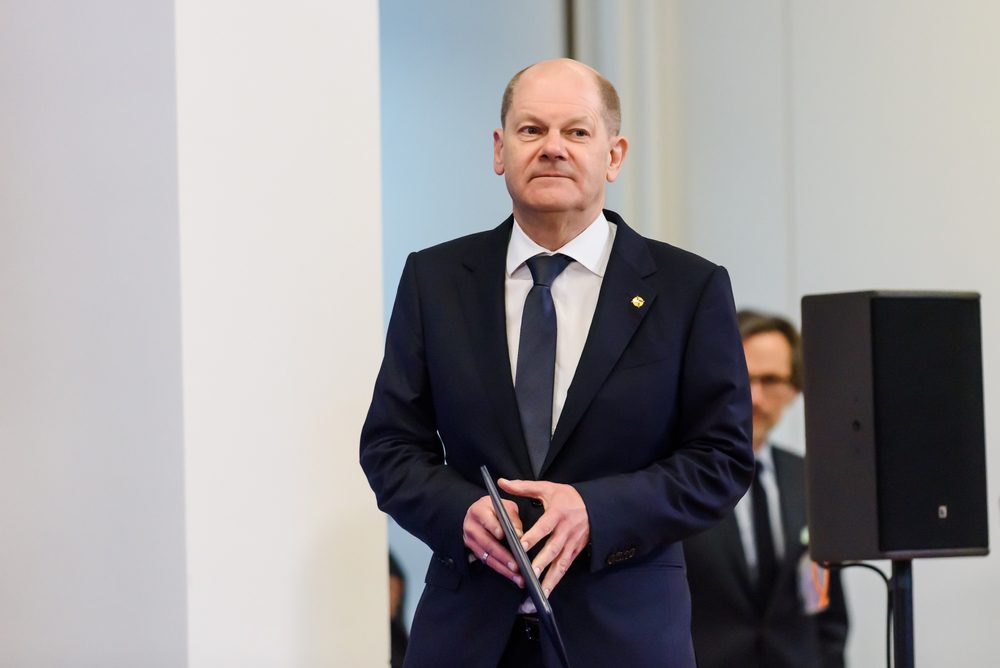
As the chorus of NATO allies urging a boost in military support for Ukraine grows louder, German Chancellor Olaf Scholz treads with caution. While he agreed to send Leopard tanks, the prospect of dispatching German fighter planes has proven daunting.
During an interview with Der Tagesspiegel published on Sunday, Scholz called the question of sending combat aircraft one which “does not arise at all,” and said that he could only advise “against entering into a constant competition to outbid each other when it comes to weapons systems.”
“If, as soon as a decision has been made, the next debate starts in Germany, this does not look very serious and shakes the confidence of the citizens in government decisions,” he went on to note, decrying that such debates are often taken as occasions for “domestic political profiling.” Of primary importance to Scholz is that “all those who have announced their intention to supply battle tanks to Ukraine, do so.”
In stark contrast to German Foreign Minister Annalena Baerbock’s (Greens) view on the matter, Scholz maintains the military alliance’s official position that NATO and Russia are not at war (as the opposite would make Germany a co-belligerent).
Scholz’s statements came one day after a top Ukrainian presidential aide said that Kyiv and its Western allies were engaged in “fast-track” talks on possibly sending military aircraft as well as long-range missiles to counteract Russian air dominance.
Kyiv, losing territory as its manpower and military equipment are facing depletion, is growing increasingly desperate for next-generation western arms. While early rumors existed that the U.S. might send some of its F-16s, on Monday, U.S. President Joe Biden clarified the White House had no such intentions.
Though the Greens are perhaps the most hawkish within Scholz’s traffic-light coalition, the chancellor is facing resistance within his own party as well. On the ARD program “Report from Berlin,” SPD leader Saskia Esken showed herself more open-minded regarding sending German fighter planes.
Bundestag member Jürgen Hardt (CDU), who has been known as a staunch advocate for the delivery of heavy arms to Ukraine since the beginning of the war, discourages any red lines being drawn by the German government on the matter.
“Excluding anything only benefits the Kremlin,” Hardt told Funke Mediengruppe newspapers when asked about the delivery of fighter planes. “Ukraine’s military needs should be our point of orientation,” he concluded.
Last week, Berlin agreed to send German-made Leopard tanks to Ukraine and allow other European countries to do likewise, on the condition that the U.S. would send its M1 Abrams. Even though Scholz then ruled out the provision of fighter planes, citing fears of military escalation, the move has put Berlin in an uncomfortable position as it has now opened itself up to making more commitments.
Scholz has expressed his strong aversion to open war with Russia, and in spite of the recent concessions made to enhance Ukraine’s military power, he continues to look for an off-ramp. Further talks with Russian President Vladimir Putin are necessary, according to the German chancellor. “I will speak with Putin again over the phone,” Scholz declared in his interview without providing a specific date. “Of course, it is clear that the current situation will not change as long as Russia continues to wage war by relentlessly attacking Ukraine,” he was careful to add—presumably so as not to fall foul of his NATO partners.
Now that the U.S. has stated it will not provide F-16s, it remains to be seen whether Scholz will cave regardless and open up Germany’s hangars.
